- Back to Home »
- Christie's choice: Crook or schnook?
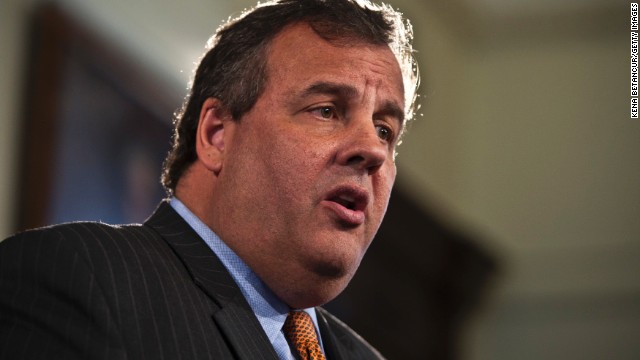 Scandal is unfolding around New Jersey Gov. Chris Christie over lane closures on the George Washington Bridge as part of a political vendetta to punish a local mayor who wouldn't support him at the polls.In damaging evidence, Christie's top aide, Bridget Anne Kelly, sent an e-mail to David Wildstein, then-top New Jersey official at the Port Authority, three weeks before the lane closures, saying, "Time for some traffic problems in Fort Lee.""Got it," Wildstein replied.New Jersey State Sen. Ray Lesniak told CNN he will formally request an investigation.
Scandal is unfolding around New Jersey Gov. Chris Christie over lane closures on the George Washington Bridge as part of a political vendetta to punish a local mayor who wouldn't support him at the polls.In damaging evidence, Christie's top aide, Bridget Anne Kelly, sent an e-mail to David Wildstein, then-top New Jersey official at the Port Authority, three weeks before the lane closures, saying, "Time for some traffic problems in Fort Lee.""Got it," Wildstein replied.New Jersey State Sen. Ray Lesniak told CNN he will formally request an investigation. 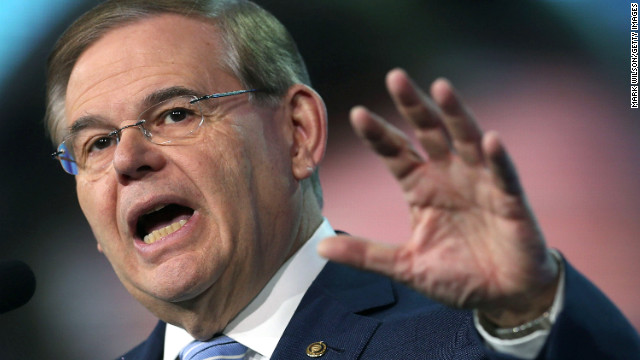 Sen. Robert Menendez is saying accusations of paying a Dominican woman for sex against him are part of a smear campaign against him after a woman filed a notarized statement that she had never even met the New York Democrat. If Menendez's charges are true, it wouldn't be the first time an American politician was targeted for dirty tricks -- the practice goes back as far as running for office in the U.S.Click through to see other examples of less-than-ethical campaign tactics.
Sen. Robert Menendez is saying accusations of paying a Dominican woman for sex against him are part of a smear campaign against him after a woman filed a notarized statement that she had never even met the New York Democrat. If Menendez's charges are true, it wouldn't be the first time an American politician was targeted for dirty tricks -- the practice goes back as far as running for office in the U.S.Click through to see other examples of less-than-ethical campaign tactics. 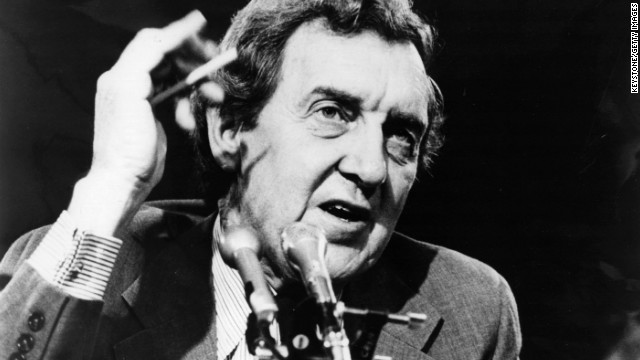 Fake letters: Then-Sen. Edmund Muskie of Maine was expected to do well in the 1972 Democratic primary in neighboring New Hampshire. But the Manchester Union-Leader published a letter alleging that Muskie condoned the use of the term "Canuck," a derogatory term used against French-Canadians. Muskie denied the charge but still suffered at the polls in the early primary, which doomed his chances. The Washington Post later reported that the letter was a hoax and was probably written by Ken Clawson, deputy White House communications director in the Nixon administration.
Fake letters: Then-Sen. Edmund Muskie of Maine was expected to do well in the 1972 Democratic primary in neighboring New Hampshire. But the Manchester Union-Leader published a letter alleging that Muskie condoned the use of the term "Canuck," a derogatory term used against French-Canadians. Muskie denied the charge but still suffered at the polls in the early primary, which doomed his chances. The Washington Post later reported that the letter was a hoax and was probably written by Ken Clawson, deputy White House communications director in the Nixon administration. 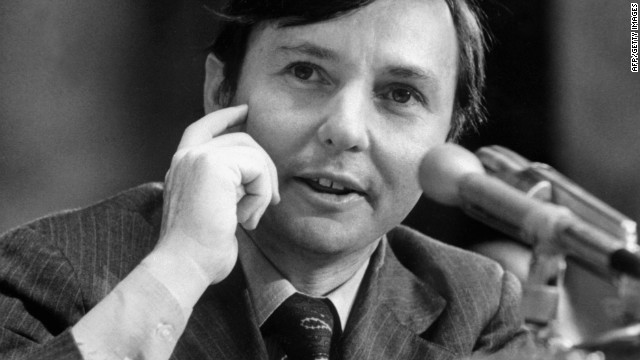 Watergate: The break-in at the Watergate was just the tip of the iceberg of what was going on within Richard Nixon's re-election campaign in 1972. The Nixon machine was hell-bent on destroying its opponents and Donald Segretti was one of the primary dirty tricksters. The Nixon operative printed fliers that attacked Muskie on his stance against Israel and placed them outside synagogues. He also pitted Democrats against one another in a tactic he called "rat-f---ing," like the letter addressed from Citizens for Muskie that accused Democratic primary rival Sen. Henry Jackson of fathering an illegitimate child with a teenager and that Jackson was a homosexual. Segretti was one of several Nixon operatives who ended up in jail.
Watergate: The break-in at the Watergate was just the tip of the iceberg of what was going on within Richard Nixon's re-election campaign in 1972. The Nixon machine was hell-bent on destroying its opponents and Donald Segretti was one of the primary dirty tricksters. The Nixon operative printed fliers that attacked Muskie on his stance against Israel and placed them outside synagogues. He also pitted Democrats against one another in a tactic he called "rat-f---ing," like the letter addressed from Citizens for Muskie that accused Democratic primary rival Sen. Henry Jackson of fathering an illegitimate child with a teenager and that Jackson was a homosexual. Segretti was one of several Nixon operatives who ended up in jail. 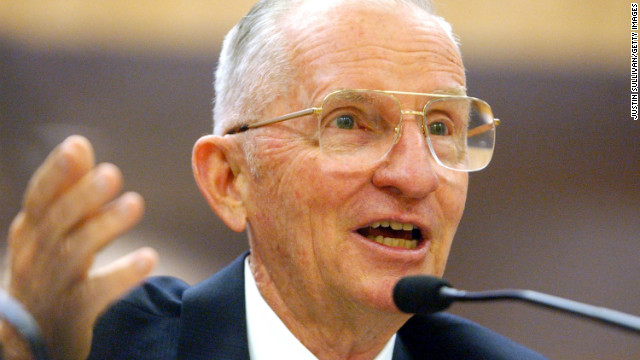 Doctored photos: Ross Perot was the first major third-person candidate in modern American politics to mount a serious run for the White House. His plain spokenness got attention and his platform appealed to the far-right. Most of all, he was seen as a threat to split the Republican vote with President George H.W. Bush, who was running for his second. Despite the energy in his campaign, Perot dropped out of the race, claiming that Republican operatives were about to smear his daughter with doctored photos and try to ruin her wedding. Perot never explained what the photograph purportedly showed.
Doctored photos: Ross Perot was the first major third-person candidate in modern American politics to mount a serious run for the White House. His plain spokenness got attention and his platform appealed to the far-right. Most of all, he was seen as a threat to split the Republican vote with President George H.W. Bush, who was running for his second. Despite the energy in his campaign, Perot dropped out of the race, claiming that Republican operatives were about to smear his daughter with doctored photos and try to ruin her wedding. Perot never explained what the photograph purportedly showed. 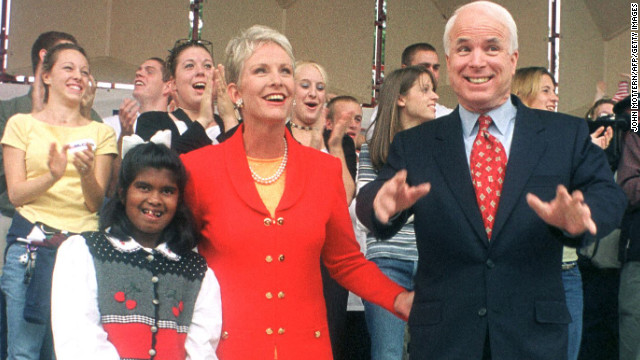 South Carolina: Sen. John McCain's first run for president was against then-Texas Gov. George W. Bush in 2000. Karl Rove, often called the "brain" behind the Bush operation, began to spread the rumor in South Carolina that McCain had fathered an illegitimate black child, asking voters if they would support McCain if he had fathered an illegitimate black child. McCain lost South Carolina decisively and his chance at the nomination. The rumors twisted the fact that McCain's adopted daughter Bridget whom he adopted from Bangladesh.
South Carolina: Sen. John McCain's first run for president was against then-Texas Gov. George W. Bush in 2000. Karl Rove, often called the "brain" behind the Bush operation, began to spread the rumor in South Carolina that McCain had fathered an illegitimate black child, asking voters if they would support McCain if he had fathered an illegitimate black child. McCain lost South Carolina decisively and his chance at the nomination. The rumors twisted the fact that McCain's adopted daughter Bridget whom he adopted from Bangladesh. 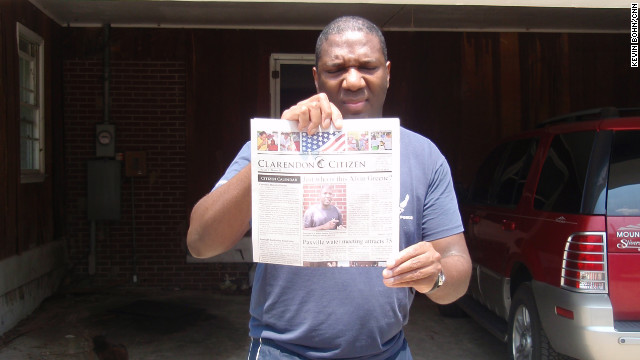 The mystery of Alvin Greene: When Alvin Greene suddenly won the Democratic primary for U.S. Senate in South Carolina, experts asked, "Who?" Greene didn't campaign, had no political experience was rarely seen in public. A CNN interview led to more questions of whether he was intellectually capable of running a viable campaign. Others felt that Green was planted by Republican Sen. Jim DeMint, who was running for re-election. Greene was cleared by the South Carolina Law Enforcement Division before he lost overwhelmingly to DeMint.
The mystery of Alvin Greene: When Alvin Greene suddenly won the Democratic primary for U.S. Senate in South Carolina, experts asked, "Who?" Greene didn't campaign, had no political experience was rarely seen in public. A CNN interview led to more questions of whether he was intellectually capable of running a viable campaign. Others felt that Green was planted by Republican Sen. Jim DeMint, who was running for re-election. Greene was cleared by the South Carolina Law Enforcement Division before he lost overwhelmingly to DeMint. 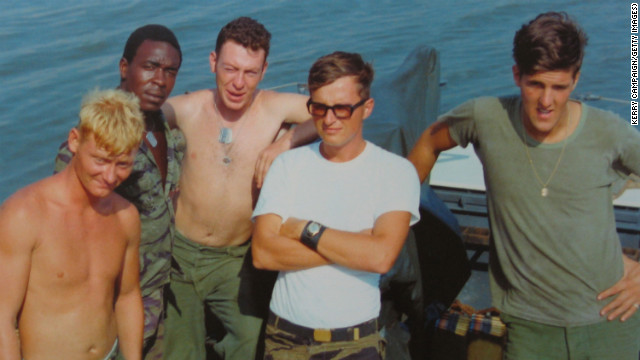 Swift-boating: Before John Kerry was elected senator, won the Purple Heart and a Bronze Star for his service in Vietnam before later protesting against the war. When he ran against Bush in 2004, he spoke out against the Iraq War. Although Kerry was seen as the underdog in the race, he was gaining momentum before a political ad released by the group known as Swift Boat Veterans for Truth accused Kerry of speaking ill of his fellow veterans and lying to get his medals. Kerry first tried to ignore the ads before denying the allegations but by then the ads and Kerry's avoiding them stopped whatever momentum was building.
Swift-boating: Before John Kerry was elected senator, won the Purple Heart and a Bronze Star for his service in Vietnam before later protesting against the war. When he ran against Bush in 2004, he spoke out against the Iraq War. Although Kerry was seen as the underdog in the race, he was gaining momentum before a political ad released by the group known as Swift Boat Veterans for Truth accused Kerry of speaking ill of his fellow veterans and lying to get his medals. Kerry first tried to ignore the ads before denying the allegations but by then the ads and Kerry's avoiding them stopped whatever momentum was building. - Paul Begala: Chris Christie faces difficult choice between being seen as a crook or a schnook
- He says Christie is not convincing playing the victim of his own staff
- Begala says the scandal is likely to haunt Christie because it fits perceptions of him as a bully
- The investigative and legal process will grind on, to Christie's detriment, Begala says
Editor's note: Paul Begala, a Democratic strategist and CNN political contributor, was a political consultant for Bill Clinton's presidential campaign in 1992 and was counselor to Clinton in the White House.
(CNN) -- Somewhere, Dick Nixon wants a royalty check.
When New Jersey Gov. Chris Christie channeled his inner Tricky Dick and declared, "I am not a bully," he did himself no favors.
To be fair, Christie faced a dilemma: Either admit to creating a climate of bullying, intimidation and political payback that led to the George Washington Bridge scandal, or claim that his staff and appointees disrupted traffic on the world's busiest bridge as political punishment without his knowledge. In the business we call it a choice between being a crook or a schnook.
Ladies and gentlemen, meet Gov. Schnook.
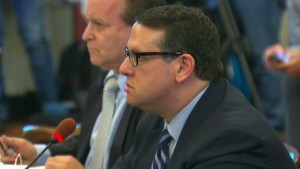 I take the fifth, ex-Christie aide says
I take the fifth, ex-Christie aide says 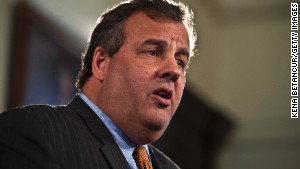 DNC Chair: Christie not straight shooter
DNC Chair: Christie not straight shooter 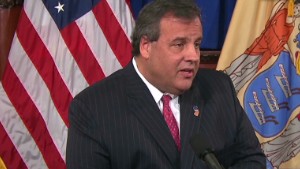 Christie faces the music: The highlights
Christie faces the music: The highlights 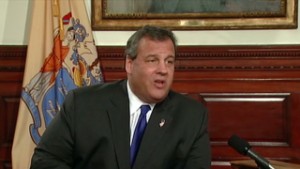 Christie: Mayor wasn't on my radar
Christie: Mayor wasn't on my radar A schnook, for those who don't speak Yiddish, is a dupe. A fool. A patsy. A schnook is a victim, and Chris Christie is not convincing playing the victim. He wants us to believe that Gov. Straight-Talk, Mister No-B.S., credulously believed a pack of lies from his close aides.
He wants us to believe that, as a former federal prosecutor, he thought his one-hour "investigation" of this operation, which yielded no confessions, was all that he could have done to unearth the truth. The governor clearly hopes that his press conference, his apology and his firing of one whole person will put this issue to rest.
It won't.
There's a great old saying that battle-scarred scandal managers love: "The dogs bark but the carnival moves on." It's the crisis manager's equivalent of "Take two aspirin and call me in the morning," meant to reassure the scandal-plagued public figure that the media and the public have short attention spans, and that the next twerking episode will distract folks.
But not with the Chris Christie bridge-closing scandal: This one's gonna stick.
How do I know? Three reasons:
1. It feeds a pre-existing narrative. This is the most important factor in determining whether a miscue becomes a scandal and whether a scandal becomes a permanent taint. Any issue that advances a narrative that people already have is given greater credence and is more memorable.
Every public figure has a master narrative. In fact they have two: one positive, one negative. In the case of Christie, his larger-than-life persona has been drawn both with bold strokes and in vivid color. The positive narrative is compelling -- and true: the straight-talking, forceful, blunt leader; the no-nonsense take-charge guy who blasted as "stupid and selfish" his own constituents who did not evacuate a beach community before a hurricane.
Christie's negative narrative is just as powerful, and just as true: bully. He burst on the national scene in YouTube clips of town hall meetings where he berated critics. As The New York Times reported, as governor, Christie has a remarkable pattern of bullying: stripping former Gov. Richard Codey of his security detail after Codey called Christie "combative and difficult;" cutting funding to a Rutgers University program run by a professor who sided with Democrats on a redistricting panel, and more.
If, as it appears, Christie's appointees and staff forced New Jerseyans to suffer through a four-hour traffic jam because their mayor -- a Democrat -- had the temerity to back the Democratic candidate opposing Christie's re-election, it doesn't just feed the image of a bully; it cements it.
2. There are ongoing legal and political processes. The Democratic majority leader of the State Senate, Loretta Weinberg, described herself as shocked by the scandal. More important -- and more ominous, for Christie -- she declared, "I am waiting -- and hopefully with the support of Assemblyman (and Deputy Speaker John) Wisniewski -- that the subpoena power will continue." Continuing subpoenas mean continuing revelations. "Sooner rather than later," Weinberg said, "we're going to hear the whole story of who knew what when."
There are almost certainly going to be lawsuits from aggrieved commuters, which will put folks under oath. And, most ominously, the U.S. attorney has said he is looking into the matter. If this becomes a federal case, the stakes rise immeasurably.
3. It happened at the media epicenter. It's not fair, but it's true: The news media is based largely on the East Coast and principally in New York. If the governor of South Dakota closed the Chief Standing Bear Bridge, which connects South Dakota to Nebraska, most of the national media would not know or care. But this is the George Washington Bridge. Journalists can cover this story, literally, on their commute. Christie's proximity to the media center has helped fuel his celebrity; now it may fuel his downfall.
The truth is there is not much Christie can do about these three dynamics. He tried apologizing, but kept returning to the plea that he is truly the victim here: that he's just a poor schnook who was lied to.
It seems to me that is small comfort to the thousands of people who endured four-hour traffic jams, or schoolchildren trapped on endless bus rides, or the family of the elderly woman who died after emergency services were slow in getting to her. He tried blaming others, as if acting in a Sopranoesque fashion is totally antithetical to his political style. Soon he will return to attacking the press and Democrats. None of it will work.
If you believe Bullygate is going away anytime soon, there's a bridge in Fort Lee I'd like to sell you.
Follow us on Twitter @CNNOpinion.
Join us on Facebook/CNNOpinion.
The opinions expressed in this commentary are solely those of Paul Begala.







